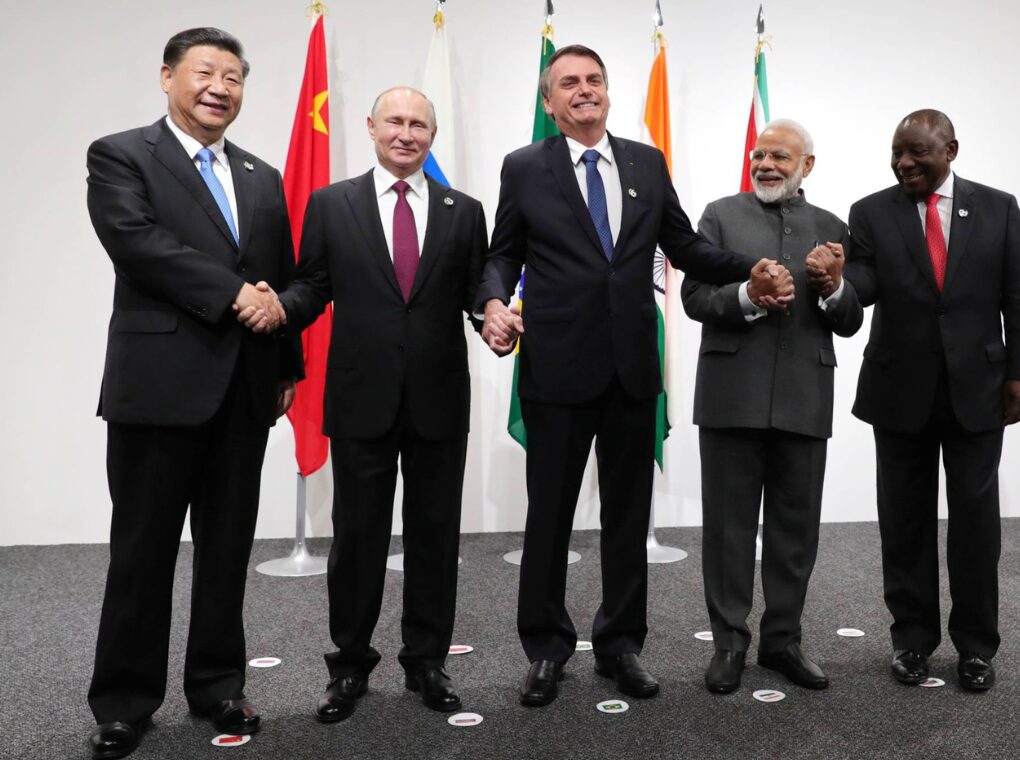The upcoming 17th BRICS Summit in Rio de Janeiro, scheduled for July 6–7, 2025, is drawing global attention not only for its expanded membership and wide-ranging agenda but also for a conspicuous diplomatic vacuum: the absence of two of its most prominent founding leaders — Russian President Vladimir Putin and Chinese President Xi Jinping.
Their decision not to attend in person is more than symbolic. It reflects growing complexities, strategic recalculations, and evolving power dynamics within the BRICS framework at a time when India and Brazil appear increasingly central to the bloc’s direction.
What is BRICS?
BRICS is an acronym for a bloc of major emerging economies: Brazil, Russia, India, China, and South Africa. Originally conceived in the early 2000s as a counterbalance to Western-dominated financial institutions like the IMF and World Bank, BRICS has evolved into a key geopolitical grouping aiming to reshape global governance.
In 2023, the bloc took a historic step by expanding to include five new members: Egypt, Ethiopia, Iran, Saudi Arabia, and the United Arab Emirates. This expansion reflects its ambition to become the voice of the Global South and a more powerful force in global diplomacy and economics. The 2025 summit in Brazil will be the first to include these new members in full participation.
Putin and Xi: Two No-Shows, Two Different Messages
While both leaders will be represented by senior officials — Foreign Minister Sergey Lavrov for Russia and Premier Li Qiang for China — their absence sends different signals.
In Putin’s case, the reason appears largely logistical and legal. With an arrest warrant issued by the International Criminal Court (ICC) over the war in Ukraine, and Brazil being a signatory to the Rome Statute, attending the summit in person poses legal risks. Putin also skipped the 2023 BRICS Summit in Johannesburg for similar reasons.
Xi Jinping’s absence, on the other hand, carries more nuanced strategic and diplomatic undertones. It will be his first time missing a BRICS Summit since taking office in 2013. Officially, Beijing has attributed the decision to a scheduling conflict. Unofficially, the signals are far more layered — and politically significant.
Xi’s No-Show: A Symptom of Shifting BRICS Dynamics
Xi’s decision not to travel to Brazil has caught diplomatic observers by surprise. Despite China’s public support for Brazil’s BRICS presidency, Xi’s absence is widely seen as a reflection of shifting influence within the group — and rising discomfort with those changes.
Sources within Brazilian diplomatic circles say President Lula da Silva expected Xi’s attendance, particularly after traveling to Beijing in 2024 as a gesture of goodwill. The expectation was that Xi would return the favor in Rio. His failure to do so is seen in Brasília as a diplomatic slight.
Further complicating matters is the anticipated spotlight on Indian Prime Minister Narendra Modi, who will attend the summit and also participate in a state visit to Brazil. The optics of a high-level bilateral engagement between India and Brazil — two BRICS founders who have refrained from joining China’s Belt and Road Initiative — may have made Xi uneasy about appearing diminished on a stage where Modi’s global stature is rising.
Modi’s Moment and the Changing Face of BRICS
Modi’s presence in Rio comes at a time when India’s global influence has markedly grown. From its assertive G20 leadership to strengthening ties with both the Global South and the West, India is now seen not just as a participant in BRICS but as one of its core strategic drivers.
India’s refusal to endorse China’s BRI, its increasingly autonomous foreign policy, and its role in reshaping global governance debates have positioned Modi as a central figure in global diplomacy — and potentially, the new face of BRICS leadership. Xi’s absence may be interpreted as a strategic choice to avoid publicly ceding that space.
A More Fragmented BRICS?
With the inclusion of new members — Egypt, Ethiopia, Iran, Saudi Arabia, and the UAE — BRICS has grown in size and scope. But this expansion also brings challenges: managing diverse economic priorities, geopolitical alignments, and competing national interests.
Putin’s and Xi’s absence — particularly when viewed against the backdrop of this expanded membership — raises questions about the bloc’s internal cohesion. While both Russia and China continue to express rhetorical commitment to BRICS, their leaders’ absence suggests a more transactional, cautious approach to its evolving structure.
For Brazil, this is a diplomatic disappointment. For India, it is a moment of opportunity. And for the BRICS as a whole, it could mark the beginning of a new era — less dominated by its original architects and more shaped by emerging coalitions and shifting global realities.
A Summit in Transition
The 2025 BRICS Summit in Rio is being held at a time of great flux in global geopolitics — and within the bloc itself. The absence of both Vladimir Putin and Xi Jinping, while explained by different factors, underscores a broader truth: BRICS is no longer a club of five equals with a shared vision. It is now a more complex, diverse, and contested space where influence is earned, not inherited.
As Modi and Lula step into the diplomatic spotlight in Rio, the world will be watching not just for outcomes, but for signs of who is truly leading the BRICS into its next chapter.
